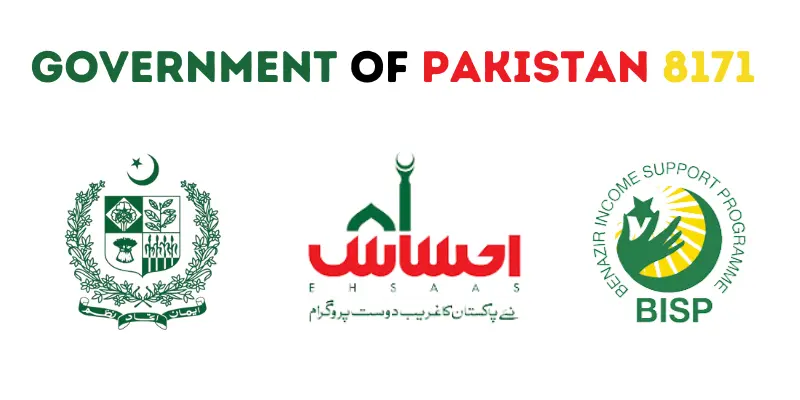BISP 8171 New Taleemi Wazaif
BISP 8171 New Taleemi Wazaif is a landmark initiative under the Benazir Income Support Programme (BISP), offering conditional cash transfers to support education for children from low-income families. Launched in 2012, the program has been pivotal in encouraging school enrollment and ensuring children, especially girls, continue their education. With technological advancements, BISP has now made it easier to check stipend balances online via CNIC, further enhancing transparency and user convenience.
You Can Also Read: Punjab Green Tractor Payment
What is the Benazir Taleemi Wazaif Program?
The Benazir Taleemi Wazaif Program, also known as Benazir Education Stipends, is designed to break the cycle of poverty through education. The program provides financial incentives to families who enroll their children in schools and ensure consistent attendance. The stipends are offered quarterly, with higher amounts allocated for girls to promote gender equality in education.
The program addresses challenges such as high dropout rates and financial constraints by linking cash transfers to attendance. This conditional approach motivates families to prioritize education and reduce absenteeism. With a special focus on rural areas and socioeconomically disadvantaged groups, Taleemi Wazaif serves as a beacon of hope for millions.

You Can Also Read: BISP Kafaalat 13500 Bank Withdrawal 2025
Key Objectives of Taleemi Wazaif
The Taleemi Wazaif Program aims to achieve transformative goals in the education sector:
- Boost Enrollment Rates: Encouraging families to enroll children in primary, secondary, and higher secondary education.
- Reduce Dropout Rates: Addressing financial hurdles through stipends to ensure consistent school attendance.
- Promote Girls’ Education: Offering higher financial support for girls to overcome gender disparities in education.
- Raise Awareness: Educating families on the importance of formal education, especially in underserved communities.
These objectives align with Pakistan’s broader educational goals, contributing significantly to social and economic development.
You Can Also Read: Benazir Kafalat Program Third Phase Payments
Eligibility Criteria for Taleemi Wazaif
To benefit from Taleemi Wazaif, families must meet specific criteria:
- Age and Education Level:
- Primary Education: Children aged 4-12 years.
- Secondary Education: Adolescents aged 8-18 years.
- Higher Secondary Education: Youth aged 13-22 years.
- Income Thresholds:
- Families earning less than Rs. 25,000/month for primary education.
- Rs. 30,000/month for secondary education.
- Rs. 45,000/month for higher secondary education.
- Enrollment:
Children must be enrolled in a recognized government school, madrassa, or approved private institution. Girls and rural families receive priority.
How to Check Taleemi Wazaif Balance Online
BISP has introduced online balance-checking features to streamline processes and enhance user experience. Follow these methods:
You Can Also Read: Punjab Government Launches Karobar Card
- Through the Official BISP Portal:
- Visit bisp.gov.pk/Status.
- Enter your CNIC in the designated field.
- View payment status, attendance compliance, and other details.
- Via SMS:
- Send your 13-digit CNIC number (without dashes) to 8171.
- Receive an automated response with your payment and eligibility status.
- Using the BISP Helpline:
- Dial 8171 from your registered mobile number.
- Provide your CNIC to the helpline agent or automated system.
- Retrieve details about your stipend and child’s enrollment.
Stipend Amounts and Additional Benefits
The quarterly stipends vary based on education levels and gender:
You Can Also Read: BISP Increases Quarterly Payments
| Education Level | Boys (Rs.) | Girls (Rs.) |
|---|---|---|
| Primary Education | 2,000 | 2,500 |
| Secondary Education | 3,000 | 3,500 |
| Higher Secondary | 4,000 | 4,500 |
Girls who complete primary education receive a one-time graduation bonus of Rs. 3,000. This added incentive encourages families to continue their daughters’ education.
Compliance Requirements for Continued Support
Families must adhere to these conditions to continue receiving stipends:
- Enrollment: Ensure children remain registered in a recognized school.
- Attendance: Maintain a minimum attendance rate of 70% each quarter.
Non-compliance may lead to temporary disqualification, although compliant siblings may still receive support.
Fraud Awareness and Safety Tips
You Can Also Read: Benazir Taleemi Wazaif Payment Schedule
BISP 8171 New Taleemi Wazaif Fraudulent schemes often target low-income families by offering fake registration or stipend collection services. To avoid scams:
- Use only official BISP channels like the official website, 8171 SMS, or local BISP offices.
- Verify information through government announcements or trusted helplines.
- Report suspicious activities to the authorities promptly.
Conclusion
The Benazir Taleemi Wazaif Program is a transformative initiative that invests in the education of underprivileged children. By linking stipends to school attendance and offering online balance-checking facilities, the program fosters transparency and accessibility. Families are encouraged to register, ensure compliance, and utilize the available resources to secure their children’s future. Education is the key to breaking the cycle of poverty, and this program is a testament to the government’s commitment to inclusive growth.
FAQs
- How can I check my balance for Taleemi Wazaif?
Use the BISP portal, SMS (8171), or helpline services. - What documents are needed for registration?
CNIC of mother/guardian, child’s B-Form, and a school admission slip. - Are girls given extra benefits?
Yes, girls receive higher stipends and a one-time graduation bonus. - What is the attendance requirement?
A minimum 70% attendance each quarter is mandatory. - What happens in case of non-compliance?
Non-compliant children may face disqualification, but siblings may continue receiving benefits.

